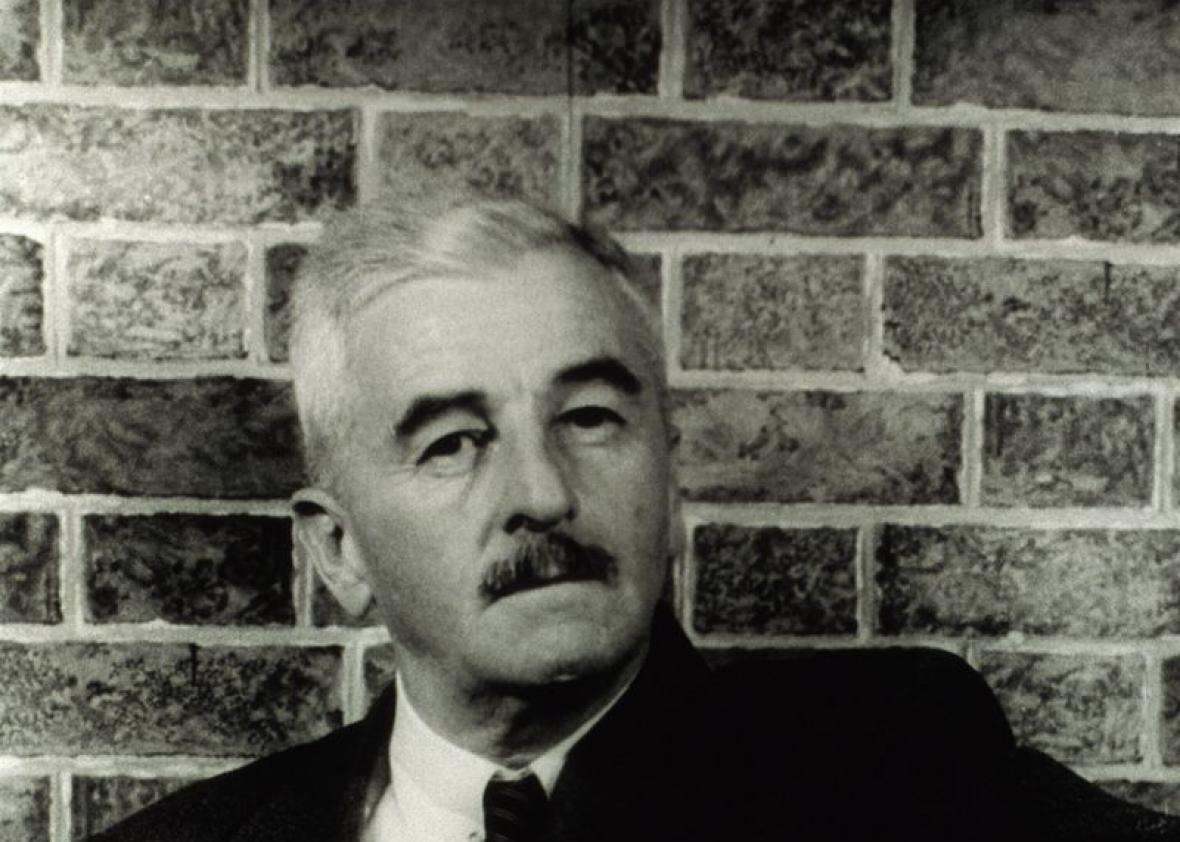Welcome to the year of Lazarus literature, in which long-lost works keep rising to walk the Earth. Now Andrew Gulli, the same Strand editor who in August claimed to have discovered the unknown Fitzgerald short story “Temperature,” has allegedly found a never-before-published Faulkner play in the University of Virginia’s archives. Setting aside Gulli’s suspicious luck (for one, he tends to resurrect texts by writers, like Mark Twain and John Steinbeck, in whom there’s an enduring interest; where’s the exhumed John Dos Passos manuscript, Andrew?!), the one-act comedy does seem to show Faulkner in lighter spirits. The play’s ’Twixt Cup and Lip. In it, two men bet on whether a beautiful and airheaded young woman will marry one of them after an hour. Faulkner is known for densely wrought modernist brocades like The Sound and the Fury, lyrical tragedies about a shadowed Southern past. This script is something different: namely, one of the most flippantly nasty pieces of literature I have ever read.
Jim and Francis are thirtysomething bachelors of means in a Prohibition-era metropolis. Over drinks at his place, Jim proposes that he can get their frivolous acquaintance Ruth to marry him when she stops by later that afternoon. Much of the play puts us in Francis’ shoes: He ducks behind a curtain, and along with him we watch Jim fumble his way through a conversation with the volatile and distracted young lady, who smokes endlessly and trills things like “Why Jim … please don’t lecture to me, you know I haven’t got any brains.” (The AP glossed ’Twixt Cup and Lip as a tale about “a modern, free-thinking woman.” If so, Faulkner has a dismal opinion of modern, free-thinking women.)
Equal parts condescending and hapless, Jim makes a series of missteps. He reprimands Ruth for drinking too much and running around. He tells her he wants to “take you over my knee and spank you good.” Meanwhile, she teases and tortures him; it is clear that the two are often miserable in each other’s company.
And yet, against all odds, Jim is about to extract a matrimonial promise from Ruth (accepting marriage proposals counts as a mode of flirtation for her) when we hit twist No. 1. Turns out Francis and Ruth are secretly already engaged—Francis only agreed to the bet to part Jim from his money. Francis emerges to collect and—twist No. 2—Ruth is so offended and distraught that her fiancé would gamble on her that she breaks off the engagement and decides to marry Jim instead. (Keep in mind that Jim also bet on Ruth.) The curtains close with the “independent Jazz Age female” praising Jim for being “masterful.”
Where to start? With the empty-headed sex object or the backstabbing buddies or the disheartening prospect of these characters’ future children? Though Faulkner gets in some good lines—“What is that, sarcasm? It suits you like a grass skirt”—his vision of human relations is grimmer than an odyssey across the Mississippi wastes with your mother’s coffin. In ‘Twixt Cup and Lip, both marriages and friendships are defined by power imbalance and driven by manipulation. (The first line of the play, floating in from offstage, has Jim warning Francis, at the tail-end of an unheard conversation: “Let me tell you something, son; the more you count on ’em the worse—well, here we are.”) Its gender politics are no better. When Jim boasts early on, “I can make any living woman do as I will,” those gross words aren’t bluster; subsequent events prove them true. (We are meant, I think, to understand that he engineered the bet in order to steal Ruth from Francis.) Jim may seem in thrall to Ruth’s shifting moods, but he is entirely in command of the situation the whole time. Faulkner leaves us with a depressingly patronizing view of women, who apparently enjoy only the illusion of choice.
In an alternate (ironic) reading of the word “masterful,” the joke is on Jim for imagining that he has any hope of a happy life with someone as irritating as Ruth—but that interpretation hardly seems less misogynistic.
Usually, when plays set about slow-revealing the machinations of cheating cheaters, a lot of pleasure ensues. Yet here the misanthropy feels glib and amateur, like Seinfeld without the kookiness, charisma, or cultural specificity. One stage direction has Ruth “crying like a little girl”—a description as trite and obvious as it is condemnatory.
Faulkner spent much of his life scrounging for spare change; he wrote As I Lay Dying while working the midnight shift in a coal-fired power plant. As a struggling twentysomething, the playwright probably had little sympathy for Ruth and Jim’s moneyed milieu. But unlike Fitzgerald, Faulkner’s strengths don’t lie in satire, though he can be passionately critical of American society. The author of ‘Twixt Cup and Lip would consummate his career not in comedy but with a series of haunting fables about the elemental forces in our lives: family, love, injustice, time, death. One might call Andrew Gulli and Tonja Carter—and everyone else who wants to drag long lost works by famous authors into the light—the publishing equivalent of the Sony hacks. Let’s do Faulkner a kindness and ignore them.
